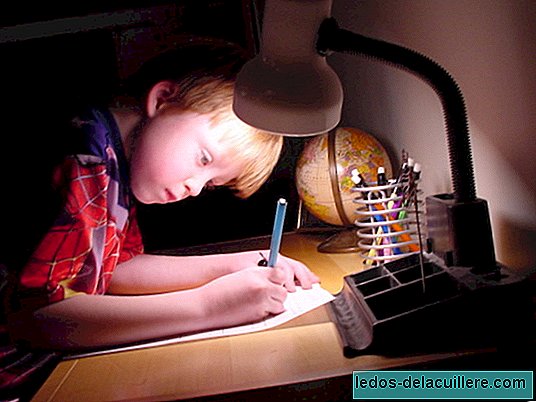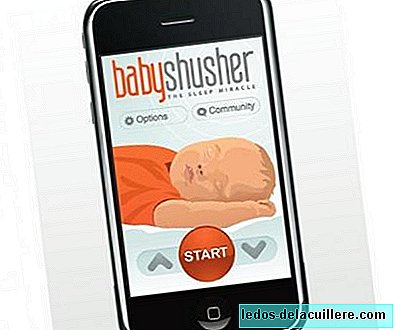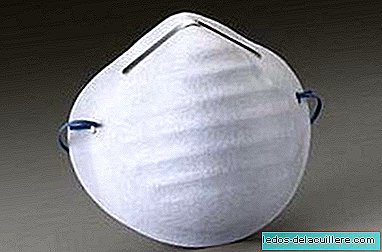The end of summer is coming and with it, the hour of that children who need it get to study "seriously" for the September exams. I know, you don't feel like it too much, but with planning, good attitude and our support, you can get it on.
We have talked to experts and we give you some keys to study on vacation be as bearable as possible.
How much time to devote to the study?
Children need a few days to disconnect from studies, so after a few weeks of rest in which they have gone to a camp or have gone on a trip, you have to reorganize routines to devote time to study. Javier Arroyo, co-founder of Smartick gives us some clues:
"The best time is first thing in the morning, after breakfast and dressing, as they are rested. Study time varies greatly depending on the age and habits of each child. In principle a dedication between 30 minutes and a time for children aged 6 to 10 should be reasonable. it is much more effective to do daily short sessions (15 minutes) than last-minute "bingeing"".
If we talk about children from 11-12, the schedule can be extended to between one and two hours, depending on the content and the time available.
Place of study
It is important that they always study in the same place, that it is comfortable and bright. Avoid family reunion sites such as the living room or kitchen to avoid distractions.
It is also recommended that you have everything at hand before you start to avoid getting up every so often.

The organization is key
The first thing to do is a curriculum with the hours to be dedicated each day. "Having goals and achieving them will reassure both the child and families," says Guillermo Bautista, professor of Education Sciences at the UOC.
Tricks to motivate them
Arroyo advises "not resort to the same books and materials that have been used during the course. We must avoid "conventional" duties and try to be creative and take advantage of the possibilities offered by new technologies and our availability of time. That way, they review concepts that do not dominate with a different attitude and predisposition. "
Immersing oneself in books discourages them a lot, and although it is necessary, it is advisable to consolidate what they have learned with alternative resources such as documentaries, a visit to the museum or movies.
Positive reinforcements
"We have studied that an adequate positive reinforcement system when students do their homework has clear benefits," says Javier. "At Smartick, for example, you earn tics that can then be used in the virtual world (cognitive games) to buy accessories for the avatar or pet, decorate the room ..."
In the real world, you can cheer him up with a prize that can be a special outing, such as going to the movies, an activity he likes, an afternoon of games together or his favorite meal.
Support them
We should not study with them, but support and encourage them. Always be available for what they need, but without pressing them. You can help your child organize and make the curriculum. And very important, help you think positive.
"If the parents remain under excessive pressure it will only create stress and discourage the student, so the family can supervise their work, but from a remote perspective," advises Bautista.

The paper of the parents
For Javier, "the role of parents is essential for children to achieve the objectives for several reasons: generate a routine that helps to get the student to develop the habit of study, as well as constantly motivate them by showing interest and being aware of the work they do ".
Finally, we must not forget that children must also perform tasks without the help of parents. It is important that the child learn to work autonomously and be able to develop their skills independently.
Find a meaning
It is also important that they see the usefulness of what they study. For example, mathematics is present in all aspects of life and helps to face many situations; they are not theoretical and abstract (they are basic to prepare a recipe, to understand the election results, for example) and mastering them will allow them to study what they want when they grow up.
Don't forget the sport
Although the child has to study, it should not neglect physical activity outdoors. The exercise and practice of sport helps improve cognitive ability, so after a morning of study, nothing better than clearing up with some physical activity.
Learn playing on vacation:
For all children, whether or not they have to take exams, there are some recommendations from the experts that we should aim for reinforce knowledge in a fun and entertaining way. As Javier recommends, we must focus on reviewing two fundamental aspects: reading-spelling and mathematics.
Not stop reading
Take time every day to encourage reading with books that adapt to the child's age and interests. Read with him alternating pages or paragraphs, comment on it, ask him some questions about what he has read, ask him to summarize it ... Another time to write, preferably creatively. Proposing for example to write a newspaper, or inventing a story between several brothers, cousins or friends in which each day continues the story. Make soups of letters with them, play together the apalabrados.
Mathematics in everyday life
As for mathematics. Arroyo suggests that we propose to the child to solve situations of daily life where he has to use what he has learned from mathematics: go buy the bread and pay for it.
Crafts
Also encourage handicrafts, as they help to fix attention, develop creativity. Combine this with the practice of several sports, and if possible share them with them. Limit the time children spend in front of “the screens”: TV, mobile phone, video games, computer.
Photos | iStockphoto and Pixababy
In Babies and more | Do you punish your children for bringing bad grades? We explain why it is not effective, The rebellion against the duties continues: the duties are not for the summer



)








